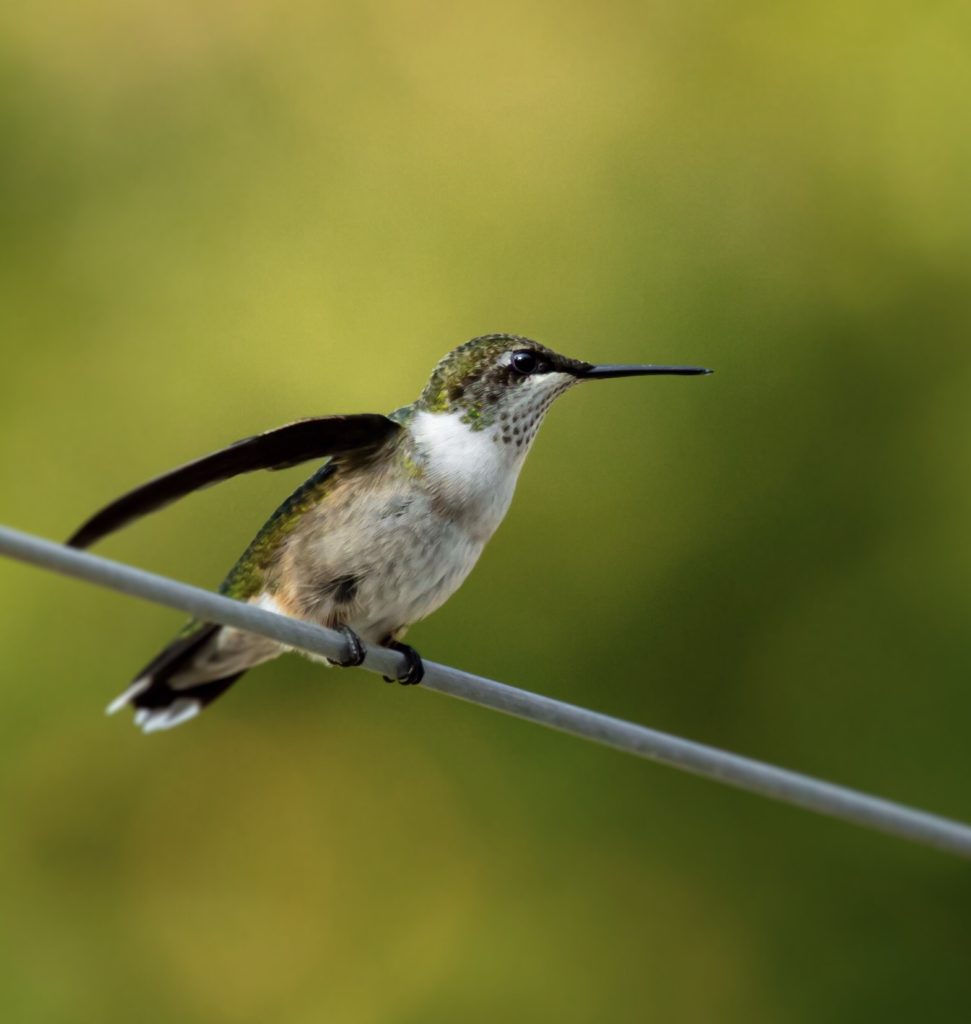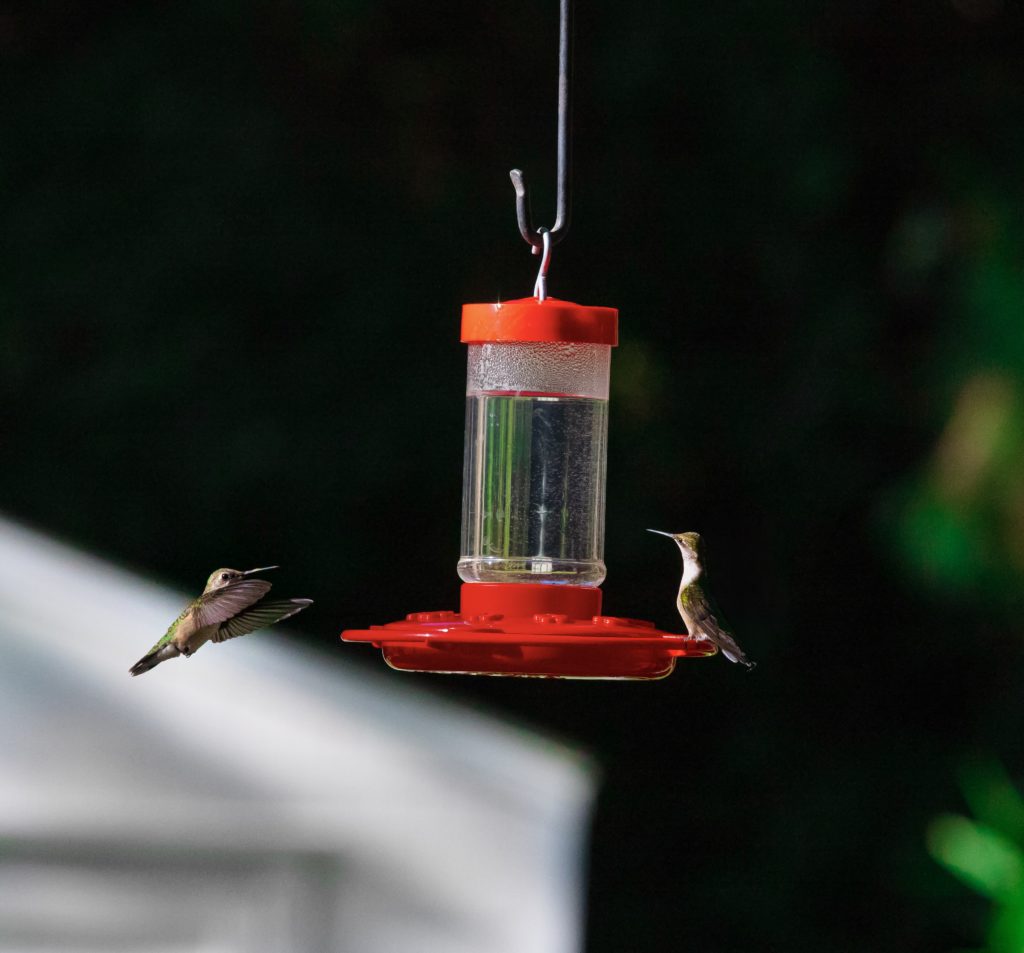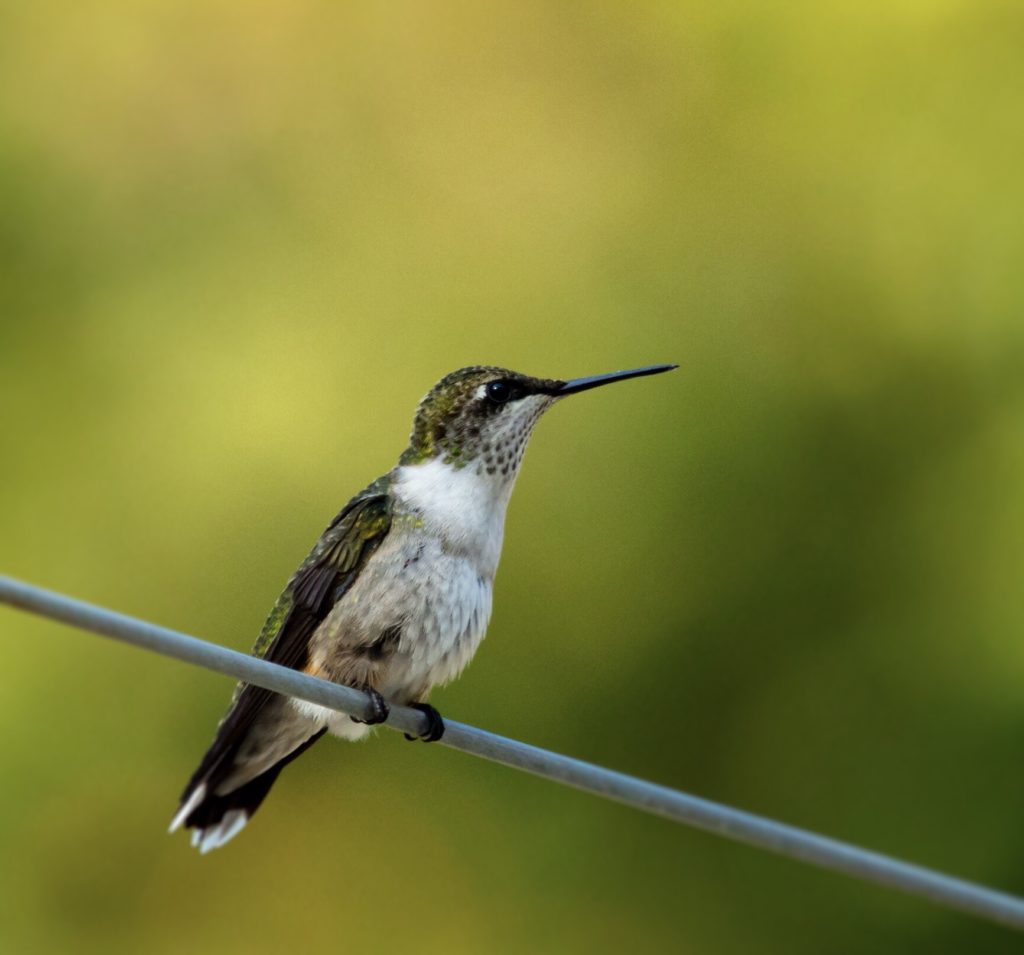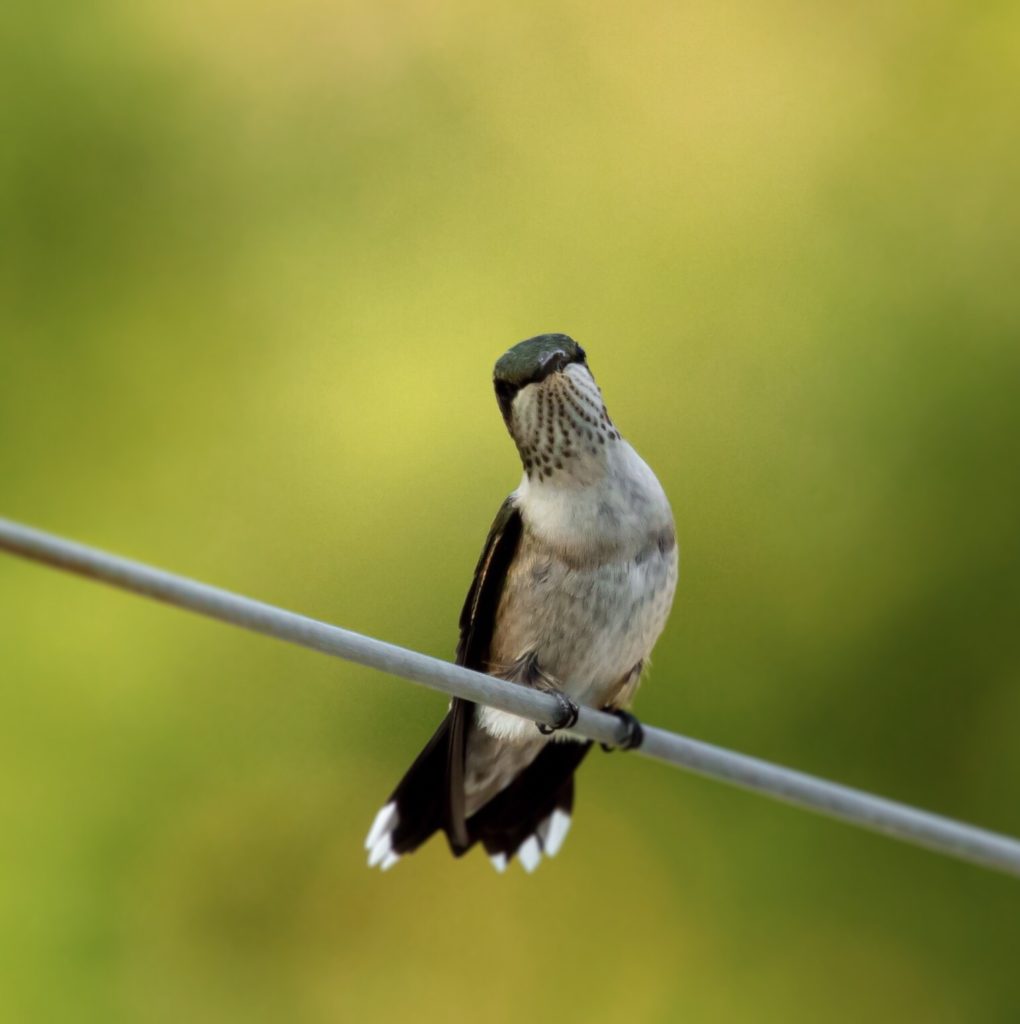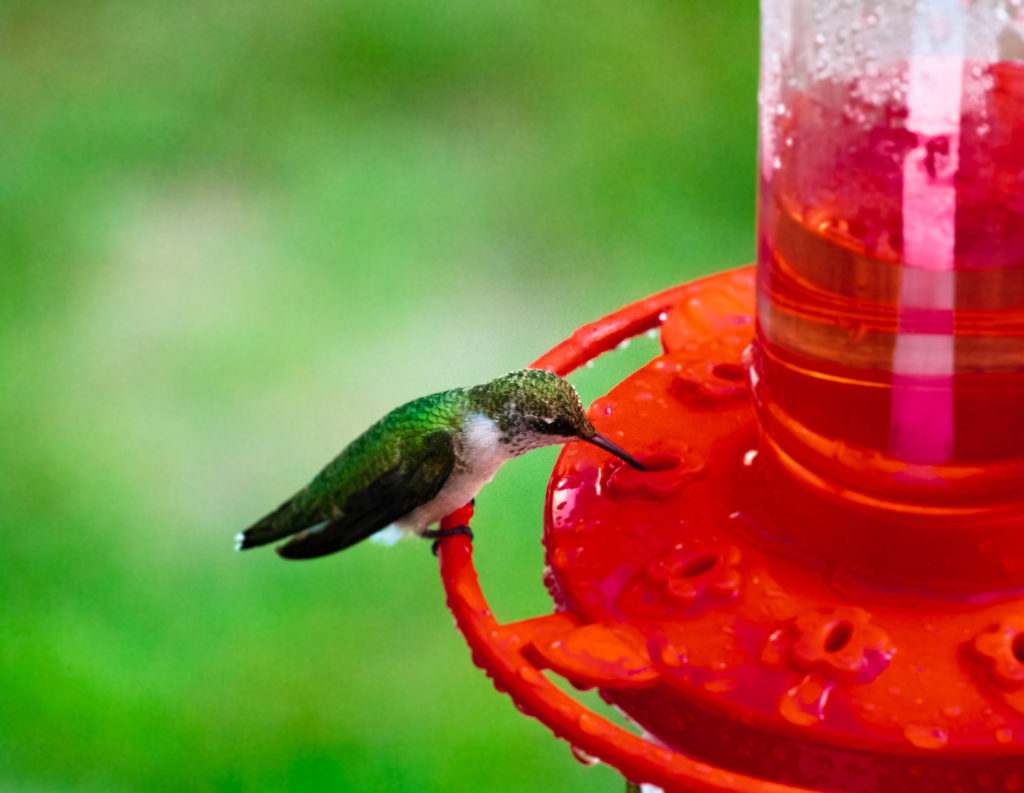Here’s a a photo that I took this afternoon in my backyard of a Ruby Throated Hummingbird zooming in for a quick snack.
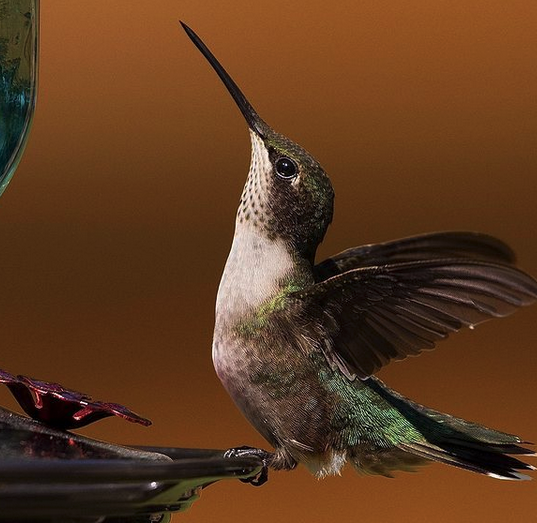
Now that autumn as arrived, I’m often asked the question of “when should I take down my Hummingbird feeders?”
Usually this is posed out of the concern that leaving your feeder out “too long” would tempt the birds into not migrating south for the winter.
The truth is that there’s no need for worry that the birds would delay their migration and get caught by winter.
The reason why is because it’s not the lack of food that tells a hummingbird when to go south. It’s the bird’s internal biological calendar, or circannual rhythms.
In fact, most Hummingbirds species start migrating while food is still plentiful.
This strategy ensures that they will always have a good source available along every step of the way on their journey south.
So, my advice is to leave your feeders up as long as hummingbirds are visiting them. Once you’ve noticed that they are gone, leave it up an additional week, just in case a straggler comes through.
Photos by @sally_siko of @birdwatching_nc on the mighty mirrorless monster of a camera, the @canonusa
#R5

